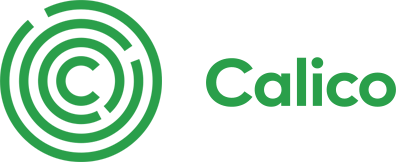
Organization Description
Calico LLC, often called Google Calico, is a US-based biotech company founded on September 18, 2013 by Bill Maris and backed by Google. According to their 2013 launch press release, the company “will focus on health and well-being, in particular the challenge of aging and associated diseases.” Additionally, in Google’s 2013 Founders Letter, Larry Page described Calico said the company would be focused on “health, well-being, and longevity”. The company’s name is an acronym for “California Life Company”. Calico is a research and development company focused on understanding the biology of aging and age-related diseases. The goal of Calico is to extend the human lifespan by developing new therapies and technologies to combat age-related diseases.
Calico is currently working with academic labs at Harvard and MIT as well as the pharmaceutical giant AbbVie to develop drugs that combat neurodegeneration and harness the power of the immune system to fight cancer. These drugs are currently in Phase I studies. In addition, the companies are advancing a strong pipeline of novel targets that includes more than 20 active programs in discovery or preclinical development in age-related diseases. It is led by CEO Arthur D. Levinson, and its founding CSO was David Botstein, both known for their leadership at Genentech. Botstein left the company in 2023, and was replaced in 2024 by Michael Lenardo, M.D..
In 2018, Calico published an interesting research paper that announced that the naked mole rat was essentially a “non-aging mammal” and that this animal did not suffer the detrimental effects of aging as we and most other species do. This is known as Negligible senescence, a term first coined by biogerontologist Caleb Finch to indicate organisms that do not exhibit evidence of biological aging. This includes measurable criteria such as a reduction in reproductive capability, functional decline, or an increasing mortality rate with advancing age.
Calico Labs have published a number of studies in recent years, most of which appear to focus either on AI or on foundational biology of aging but without any clear transnational intent. Some speculate that this is simply laying the groundwork for something grand in the future; we will have to wait and see.
In parallel, they have formed partnerships with several companies to develop therapies that target the diseases of aging, some of which target the biology of aging:
- In 2014, Calico announced a collaboration with 2M Companies to advance research on P7C3 compounds, a class of drugs that activate NAMPT, the rate-limiting step in NAD salvage. The original proposed indications were in neurodegenerative diseases of aging, and subsequent papers have reported efficacy in animal models of osteoporosis and traumatic brain injury. Many of these studies have not involved Calico, and the C2 Companies’ status is unclear.
- Also in 2014, Calico announced an R&D partnership with Abbvie focused on aging and diseases of aging, including neurodegenerative aging diseases and cancer. As of 2021, the two companies had committed more than US$1 billion into the collaboration.
- In 2015, Calico announced additional partnerships with the Broad Institute at MIT and Harvard University, the Buck Institute for Research on Aging, and QB3 at UCSF.
- In 2015, Calico licensed ISRIB from UCSF, a small molecule Integrated Stress Response Inhibitor” that restores protein translation in aging and injured neurons and has been shown to reverse cognitive deficits in physiologically aging mice as well as mouse models of neurodegenerative diseases.
- In 2024, Calico and Abbvie began a clinical trial of a different integrated stress response inhibitor that directly targets eIF2B called fosigotifator (ABBV-CLS-7262) for Vanishing White Matter Disease (ClinicalTrials.gov ID NCT05757141). In June of that year, Calico announced that fosigotifator had been selected for FDA’s Support for clinical Trials Advancing Rare disease Therapeutics (START) Pilot Program, which grants companies frequent guidance and enhanced communication with FDA review staff for candidates for rare diseases.As of March 28, 2023 ABBV-CLS-7262 is part of the HEALEY ALS Platform Trial, which is designed to evaluate multiple investigational products simultaneously, thus accelerating the development of effective and breakthrough treatments for people living with ALS. Trial enrollment was completed on April 11, 2024; on January 6, 2025, Calico disclosed that fosigotifator did not meet the study’s primary endpoint of disease progressionor key secondary endpoints, including health-related quality-of-life. There were hints of “slower deterioration in [muscle strength in] both upper and lower extremities in the exploratory high dose treatment group compared to placebo. In addition, there was a potential signal towards slowing respiratory functional decline as measured by the slow vital capacity (SVC) in the participants taking the exploratory high dose.”
In the same announcement, a Calico official said that they “remain committed to investigating the potential of fosigotifator as a much needed treatment option for people living with ALS and for other disorders, including vanishing white matter disease and major depressive disorder which each test different scientific hypotheses.”
- In 2025, Calico and Abbvie launched a clinical trial of ABBV-CLS-628 against autosomal-dominant polycystic kidney disease. ABBV-CLS-628 is a monoclonal antibody against pregnancy-associated plasma protein-A (PAPP-A), which cleaves the IGF-1 binding proteins IGFBP-4, thereby increasing IGF-1 bioavailability; thus, inhibiting PAPP-1 lowers IGF-1 signaling. PAPP-A knockout mice may have increased lifespan, on weak evidence. In animal models, this candidate reduced kidney volume and improved kidney function.
- In 2025, Calico secured the rights to 9MW3811 and other interleukin-11 (IL-11)-targeting therapeutics from Mabwell Bioscience. 9MW3811 is an investigational antibody that targets IL-11, a cytokine whose inhibition was reported by others to robustly extend lifespan and improve multiple healthspan metrics in aging mice. Mabwell had already launched Phase I trials for 9MW3811 against idiopathic pulmonary fibrosis (IPF), and has an active investigational new drug application (NDA) for 9MW3811 with FDA,

